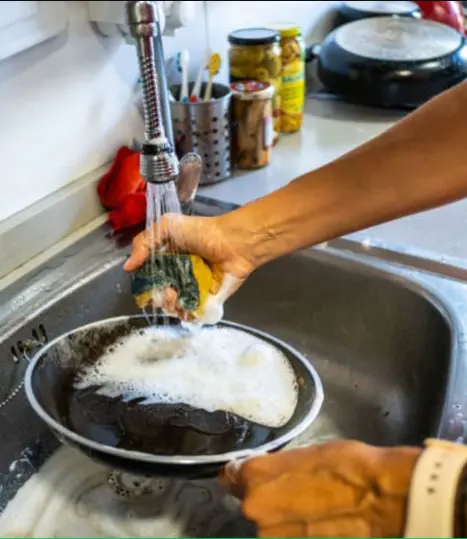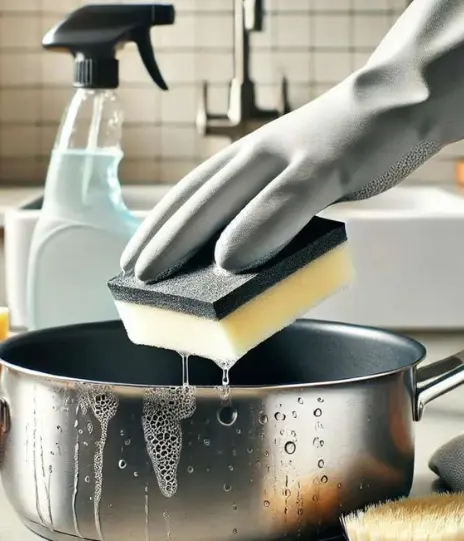Stainless steel is a common alloy material composed of iron, chromium, nickel and other elements. It has good corrosion resistance and rust resistance, and is well-deserved in modern kitchens. In this guide, PURECOOK is professional stainless steel kitchenware manufacturer, we will take you to understand the characteristics of stainless steel, why choose the stainless steel cookware 그리고 how to make stainless steel cookware outstanding, how to use and maintain them correctly, and especially how to clean your stainless steel cookware when it has nasty (mild) stains due to improper use.
Why Stainless Steel Cookware
스테인리스 스틸 조리도구 can withstand high temperatures, is adaptable to a wide range of hob types and has excellent durability.Of course, you can put them in the dishwasher for washing, but we don’t recommend it because the harsh dishwasher detergents and high-pressure water jets will wear the metal. The edges of the pans will also become sharp when the dishwasher is used repeatedly. And if your stainless steel cookware has a three-layer bottom composite structure, which means that the bottom structure of the pot contains an aluminum interlayer, the high-pressure washing method of the dishwasher may allow water with detergent to enter the interlayer and corrode the aluminum metal, which will cause your pot to be damaged.
Since stainless steel cookware is corrosion-resistant, you can use it to cook acidic foods, such as making tomato sauce or lemon sauce or baked beans, without worrying about it discoloring or metallic taste due to the acidity of the food, or cooking stocks, stews, chili, curry, anything with a high liquid-to-solid ratio, stainless steel cookware can do it. – Really, any food preparation you can think of – can be well taken care of by stainless steel cookware. Yes, this is the popular belief that fried eggs, steaks and other foods that need to be seared will stick to the stainless steel pan. Cooking such foods only requires a little know-how.
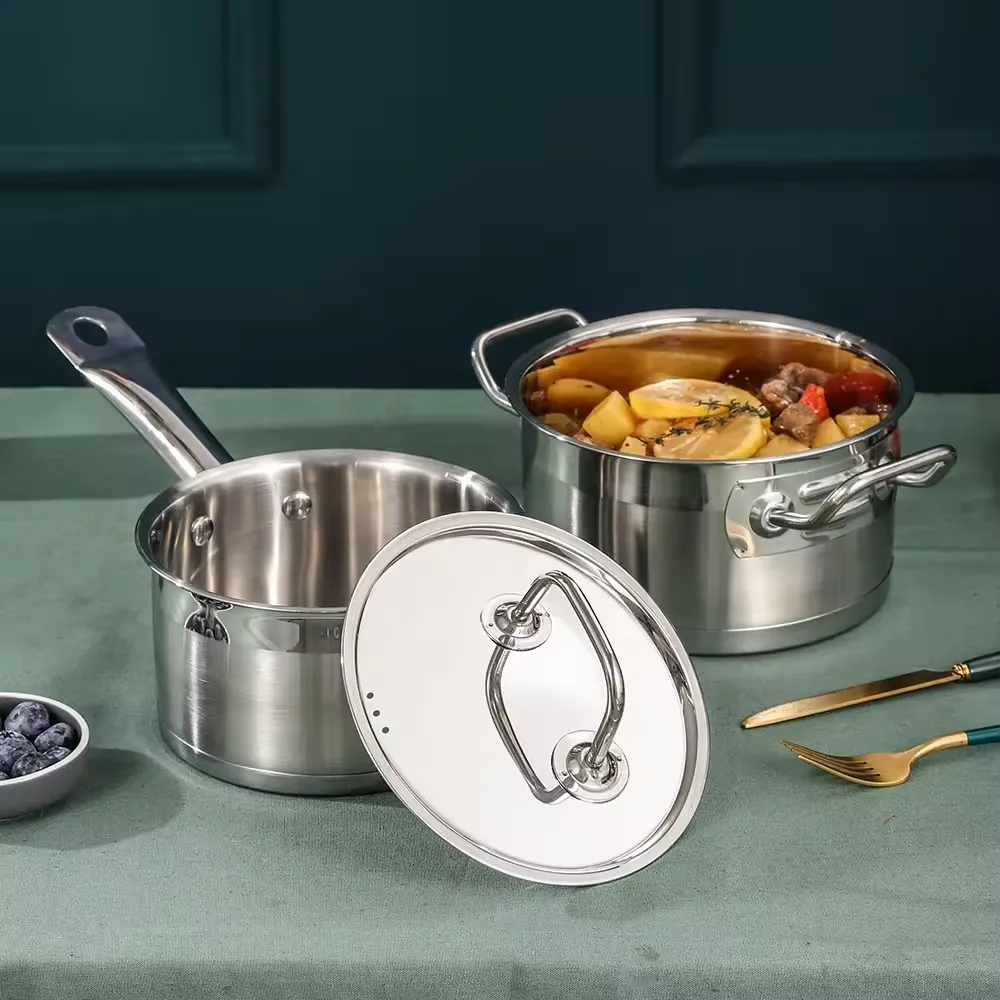
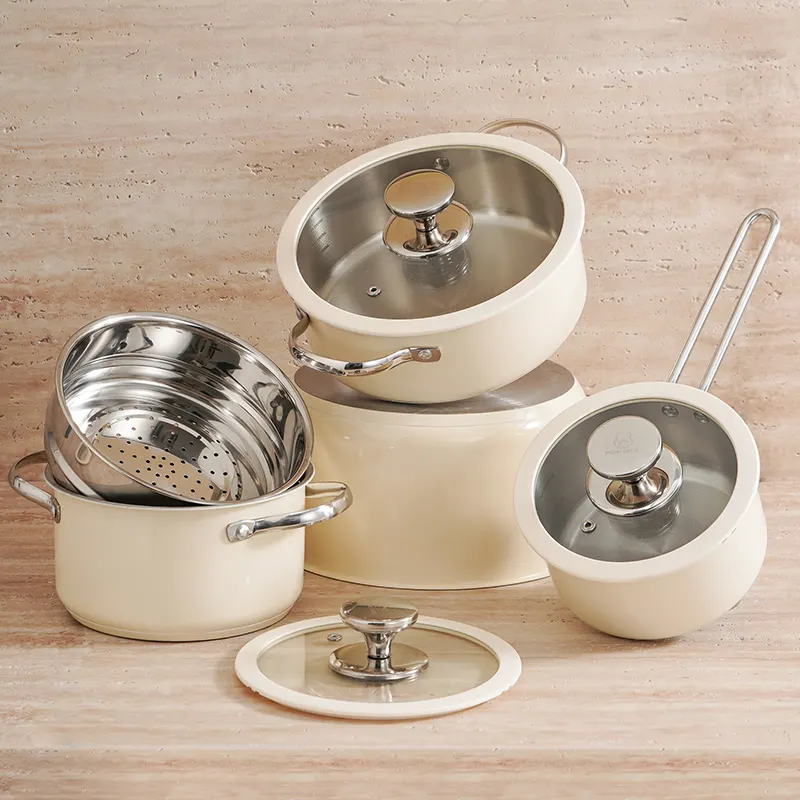
How to Cook with Stainless Steel Cookware
The general tip for cooking with stainless steel cookware is to make sure the cookware is heated to a sufficient temperature before cooking, then add the cooking oil, and add the food to cook after the oil has been heated for a short time. This operation does not need to be done multiple times during the cooking process, but only needs to be done at the beginning of the cooking process, which can be maintained until the end of the cooking process. This more or less increases the success rate of food cooking, and the food will not stick to the stainless steel cookware.
So how do you know when the temperature of the cookware is high enough to add cooking oil. You can add a few drops of water to the heated stainless steel cookware. If the temperature of the cookware is high enough, the water will form beads, bounce in the cookware and connect together to form a large string of beads. If the water bubbles but does not form water beads, it means that the temperature of your stainless steel cookware is not enough. If many small beads that evaporate violently are formed, instead of gathering into a large bead at the bottom of the cookware, the cookware temperature is too high, which is easy to cause accidents when heating cooking oil.
Another way to help you judge this process is to make sure the food is not too cold before placing it in the cookware. For example, if the food has just been taken out of the refrigerator, you can let it rest on the countertop for 10-15 minutes to let the food return to the appropriate temperature to prevent the temperature difference between the cookware and the food from being too large and causing sticking to the pot.
The best thing about using stainless steel cookware (high quality) is that it can guide you to master the timing of cooking. For example, once the food turns brown, it will automatically come out of the cookware. This will be the best time for you to turn the food. When the food can slide smoothly against the stainless steel cookware, you will know whether to turn or move it.
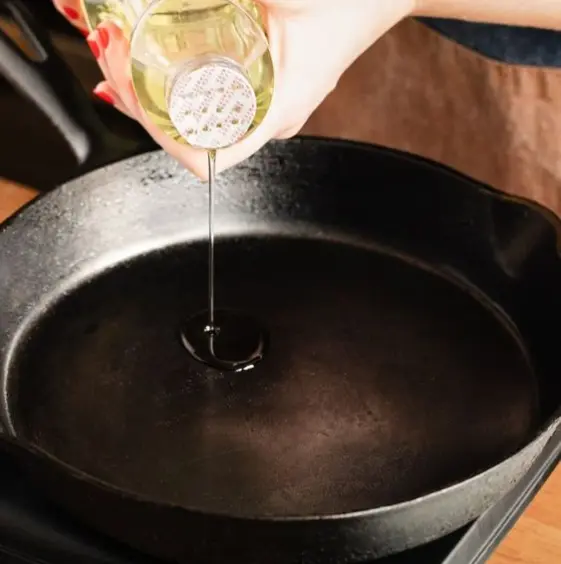

Precautions for Using Stainless Steel Cookware
One thing you must pay attention to when using stainless steel cookware is pitting. This is caused by small pits produced by the reaction of water and chlorine (an ingredient in salt). Although these pits will not immediately make the cookware unusable, they may spread and be difficult to remove. To avoid this, make sure to add salt after the water is boiling, because the high temperature of boiling water reduces the presence of oxygen, thereby preventing this reaction from occurring.
You can use any oil you like in stainless steel cookware, but be aware that extra virgin olive oil and sesame oil generally have lower flash points, so you need to pay special attention to the temperature of the cookware when using these oils and adjust the heat as needed. Of course, the most important thing is to use oil! While brushed stainless steel is less susceptible to food sticking than polished stainless steel (and easier to clean), it still requires a lot of oil to prevent sticking.
Can Stainless Steel Cookware be Used On Induction Cooktops
Stainless steel cookware is suitable for gas, induction, ceramic and AGA cookers. As long as the stainless steel cookware is made of ferritic (magnetic) steel, it can work on induction cookers. However, generally, magnetic stainless steel has poor corrosion and rust resistance. We can solve this problem through process improvements.
Purecook is a leading stainless steel 조리기구 제조업체 in the industry. Through excellent production technology, the stainless steel pots we produce are compatible with induction cookers. And they have excellent corrosion and rust resistance. Thanks to our careful consideration in design and material selection, our products can not only be used on traditional gas stoves, but also perform well on modern induction cookers. Our cookware series uses high-quality materials, is specially treated and carefully forged. Whether it is in contact with acidic or alkaline ingredients in daily cooking, or used in a humid environment for a long time, our stainless steel pots can maintain their bright and new appearance and are not easily corroded or rusted.
We provide wholesale stainless steel cookware services and 맞춤형 조리기구 솔루션. If necessary, please feel free to contact us for more information on exquisite stainless steel cookware.
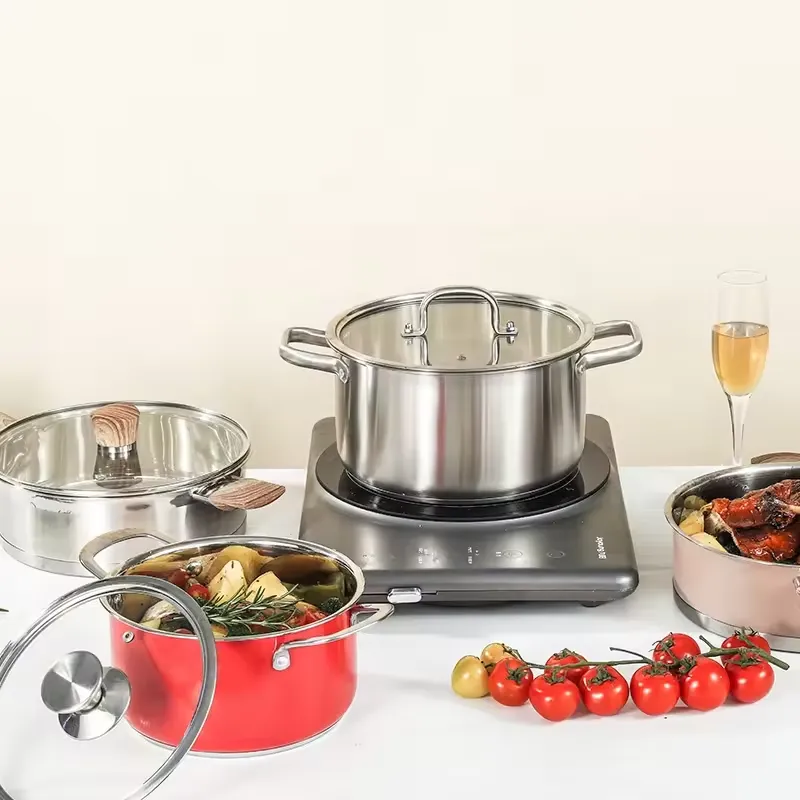
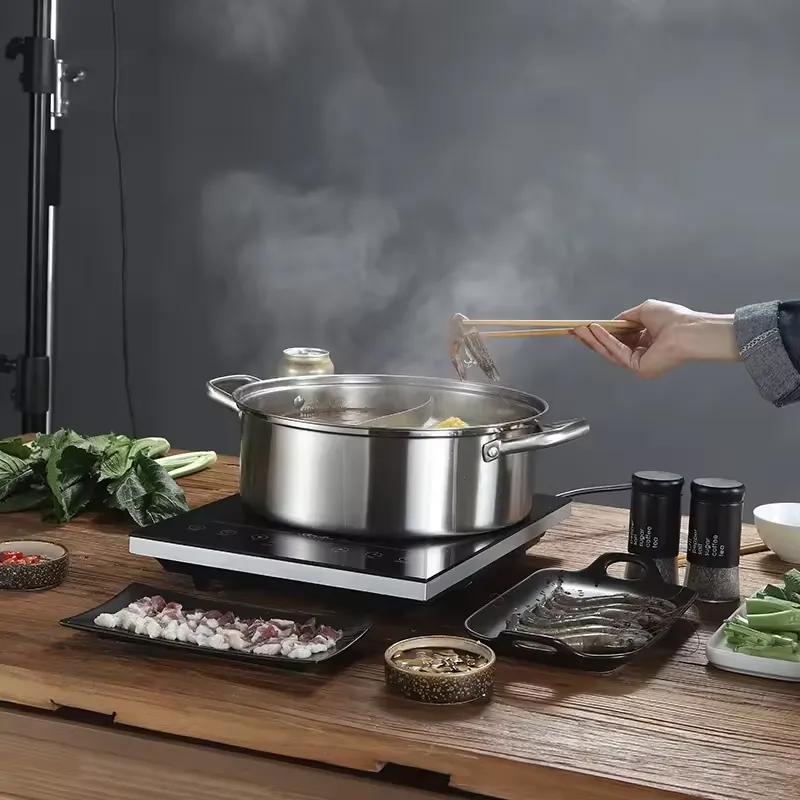
How to Clean and Maintain Cookware
●Although stainless steel is corrosion-resistant and rust-resistant, and its high hardness makes it less likely to crack, scratch or warp, this does not mean that it will never happen, so maintenance and care become important.
●Before cleaning stainless steel cookware, make sure that the temperature of the cookware has been fully cooled. If the hot cookware is repeatedly placed in cold water, it will cause the cookware to deform.
●For stubborn food residues, you can soak the cookware in warm water to soften the food residue and reduce the difficulty of cleaning.
●When stainless steel cookware is exposed to oxygen in water for a long time, water spots will appear on its surface. To avoid this, please wipe the stainless steel cookware dry in time after cleaning. If water spots have already appeared, you can clean them with a small amount of baking soda and water.
●If your stainless steel cookware has white spots, this is usually a reaction between steel and calcium. To clean these spots, you need something acidic, such as vinegar or lemon juice. Add a mixture of vinegar or lemon juice and water to the cookware, boil-cool, and you will get a clean stainless steel cookware.
●If your stainless steel cookware has blue spots with rainbow edges on the bottom, which cannot be removed by detergent. Don’t worry if this happens to your cookware; it won’t have any adverse effects on the pot. If you want to remove it, you can rinse and wipe it with a vinegar and water mixture and a non-abrasive scrubber.
